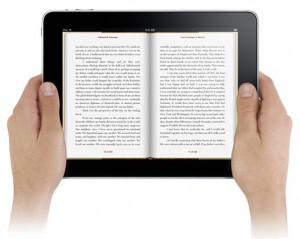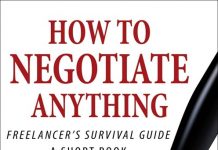 Juli’s great op-ed on book subscription services attracted much comment this week. Several readers grappled with the issue of cannibalization of book sales—the idea that publishers fear losing a more lucrative paper sale to a less lucrative digital one.
Juli’s great op-ed on book subscription services attracted much comment this week. Several readers grappled with the issue of cannibalization of book sales—the idea that publishers fear losing a more lucrative paper sale to a less lucrative digital one.
I suppose for some customers, the fear may be justified. Personally for me, the pure price argument is a bit of a red herring because I prefer ebooks primarily for convenience reasons such as saving shelf space and using dictionary, highlighting and synchronization features. But I know pricing does factor in for many readers.
Here was my thought, though—I think we are approaching the price factor from the wrong angle. The “ebooks are cheaper than paper” angle pre-supposes that paper books are priced at the “appropriate” amount and ebooks are priced too low. What if instead we should be assuming that ebooks are priced at the appropriate level and paper books are priced too high?
I have seen various estimates on the cost the paper-printing adds to the cost of the book, ranging from 5% to 15%. These are usually offered in the context of “ebooks should not be cheaper because paper adds less to the cost than you think.” Okay, maybe. But the fact remains, they DO add cost! Even if it’s only a dollar or two per book, it’s still a dollar or two. So why can’t we say instead that ebooks are priced appropriately and paper books cost too much?
I think publishers instead need to consider phrasing the pricing debate in terms of rights privileges, not in terms of sheer dollar amounts. At the lowest rung, you pay for a rental and it costs less, but you don’t get too keep it. You want to keep it, you pay a little more for the Kindle or Kobo book, and it’s downloadable and you can keep it. And if you want the collector’s item fetish object, you pay even more and you get the paper too.

































It is a pay for perceived value vs pay for real value dilemma. On the ebook side, you pay for a licence on a book, on the paper side, you pay for a book. But on the costs side, publishers workflow has yet to include systematically ebooks, so it is an additional cost. Should the end users pay for the technological migration of their (e)book providers? Dunno, in a typical company, costs would be amortized between their beneficial division.